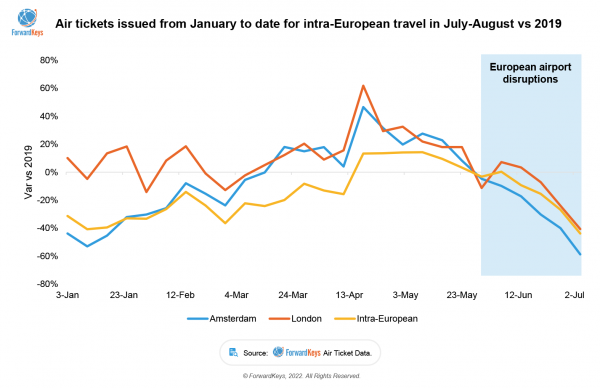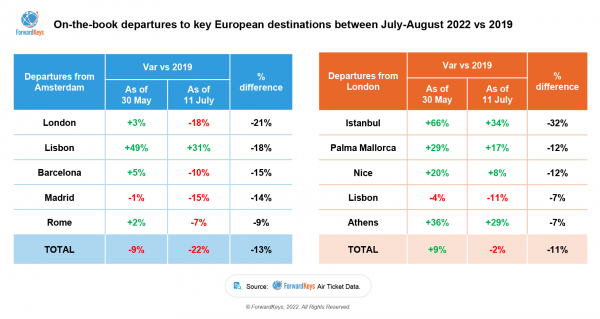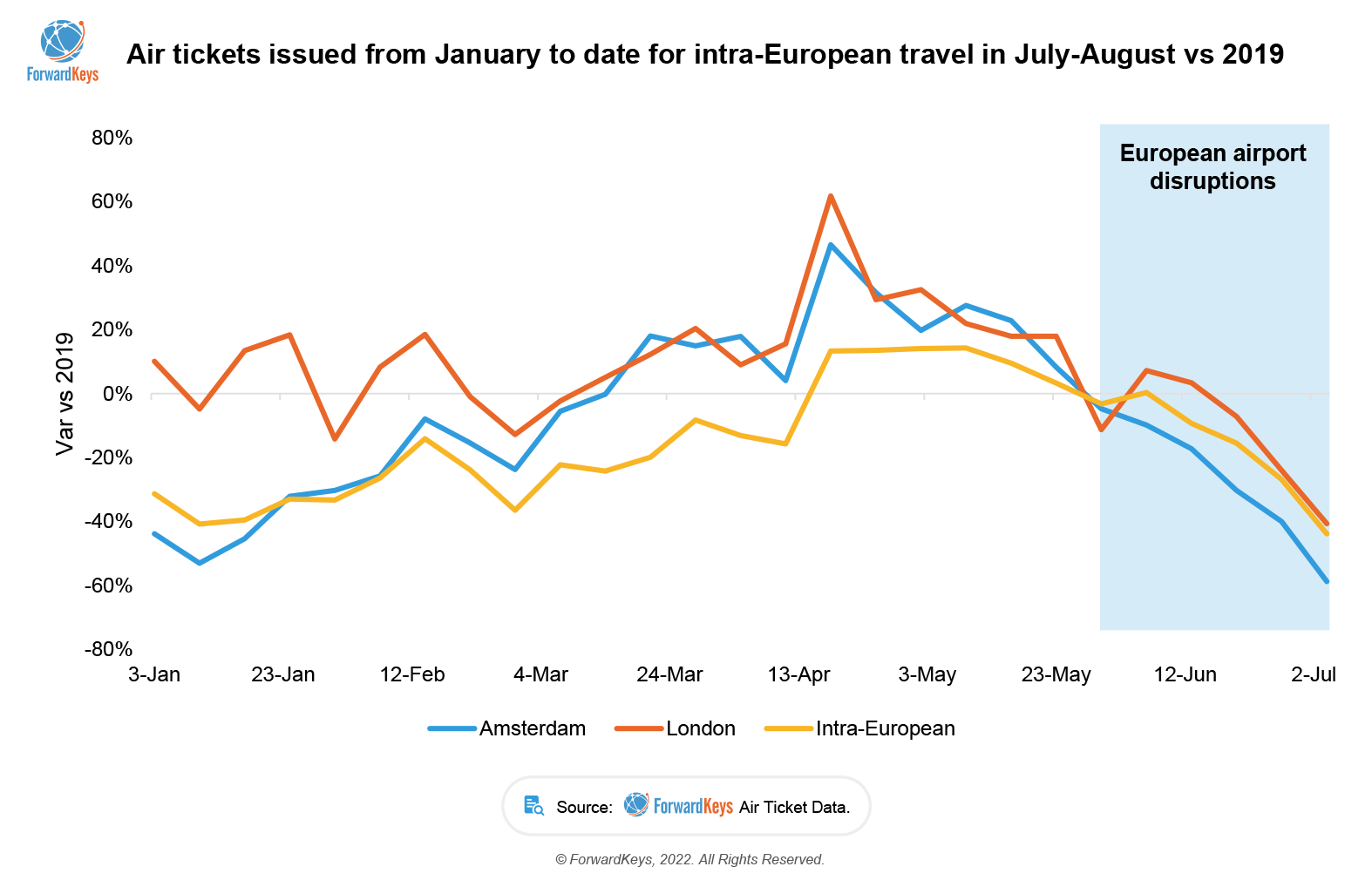SINGAPORE, 21 July 2022: Consumer confidence in air travel has continued to plummet since last May, according to the latest ForwardKeys analysis that shows last-minute bookings in the week running up to 10 July dropped by 44%, compared with 2019 levels.
Bookings from Amsterdam were down by 59% and from London by 41%. Much of the blame for the dramatic dive focuses on flight cancellations as airports, suffering from staff shortages, struggle to cope with surging demand.

The ForwardKeys research took a closer look at air traffic disruption by analysing recent trends in intra-European flight bookings for travel in July and August and changes in seat capacity.
The recent disruption to travellers’ schedules is well illustrated by a jump in the ratio of partial cancellations and modifications to total bookings. From 30 May to 10 July, it has almost tripled from 13% before the pandemic (in 2019) to 36% this summer.
The collapse in last-minute bookings and the increase in cancellations and modifications significantly dent the travel industry’s outlook for the summer. As of 30 May, total intra-European flight bookings for July and August were 17% behind 2019. However, seven weeks later, on 11 July, they were 22% behind, a slowdown of five percentage points.

The relative slowdown has been far worse for Amsterdam and London. At the end of May, July-August bookings from Amsterdam were 9% behind 2019 levels and from London were 9% ahead. They have since fallen behind to 22% and 2%, respectively, which equates to a 13 percentage-point slowdown in bookings from Amsterdam and an 11 percentage-point slowdown from London.
The destination suffering the greatest relative setback in its summer outlook as a result of the slowdown in last-minute bookings from Amsterdam is London; where bookings have slowed from 3% ahead of 2019 levels in the fourth week of May to 18% behind on 11 July, which represents a drop of 21 percentage points. On the same metric (percentage point drop), it is followed by Lisbon, 18%; Barcelona, 15%; Madrid, 14%; and Rome, 9%. Taking the same approach with London, the most affected destinations are Istanbul, where bookings have fallen by 32%; Palma Mallorca and Nice, 12%; and Lisbon and Athens, 7%.
The five percentage-point declines in intra-European bookings from the last week of May to 11 July is mirrored by a similar reduction in airline seat capacity over the same period. ForwardKeys reveals that scheduled intra-European seat capacity has reduced by 5% across the continent, with Amsterdam and London experiencing the largest reductions, at 11% and 8%, respectively.
ForwardKeys VP InsightsOlivier Ponti said: “ On the upside, it is encouraging to see a strong resurgence in demand following the pandemic, with summer bookings in May surging ahead of 2019 levels. That was excellent news for the travel, tourism, and hospitality industries, which badly need the business. However, things have come back so fast that airports and airlines have struggled to cope, which is causing chaos for the travellers whose flights are affected.
“While we can be confident that airports will eventually successfully recruit the staff they need, there are a few remaining trends that cause concern. Firstly the increase in oil prices, fuelled by the war in Ukraine, will increase the cost of flying. Secondly, inflation (also a consequence of the war) will likely leave most travellers less able to afford the fare. Lastly, the increased disruption is substantially dampening demand, as we are seeing a dramatic slowdown in last-minute flight bookings, plus an increase in cancellations. At the end of May, it seemed we were heading for an exceptional summer for travel within Europe, but now it is more likely to be just a good one.”







